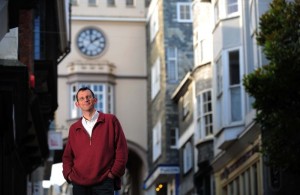See this is what happens when you do open ended searches. I am sure that you thought I would be ranting here about what a dismal conference it was. Or maybe how everything that they agreed to was a drop in the atmospheric bucket considering how much and how many different types of toxins we spew. And I may do that tomorrow, but today South Africa is smiling because nobody was killed and they got a new observatory out of the deal. From Monaco no less.
http://allafrica.com/stories/201112131459.html
SouthAfrica.info (Johannesburg)
South Africa: Climate Change Observatory for the Country
13 December 2011
A unique climate change observatory, the first of its kind in the world, focusing on bringing scientific information from around the globe to the public, is to be built in Cape Town by the International Polar Foundation.
The announcement, first reported by the SABC on Friday, was made last week at a function attended by Prince Albert and Princess Charlene of Monaco, who were in Durban for the UN climate change summit (COP 17).
Prince Albert is a patron of the Belgium-based International Polar Foundation (IPF), a non-profit organisation established in 2002 with the aim of “providing a novel interface between science and society”. The IPF’s last major project, completed in 2009, was the construction of a new research station – the world’s first zero-emission research station – in Antarctica.
Interface between science and society
Its next major project is the Polaris Climate Change Observatory, which will be built in the heart of Cape Town’s famous V&A Waterfront, on a jetty that will be specially developed, the IPF says on its website, “to offer visitors of all ages a striking experience as a path to sustainability.
“Featuring permanent and temporary exhibitions, outreach and education activities, spectacular ways of presenting climate facts and figures, highlighting new science and innovations, the Polaris Climate Change Observatory will confirm Cape Town and South Africa as world landmarks for climate action.”
According to the IPF, Cape Town is the perfect location for this “new breed of science centre”, and not only because of the city’s geographical location as a gateway to the Southern Pole.
Scheduled to open in 2014, the first Polaris Climate Change Observatory will bring together “the ingenuity of one of Africa’s premier cities with a revolutionary concept which will change the way visitors understand the world, the changing climate and ways in which humanity can take responsibility and make decisions for the future”.
:}
Go there and read. More tomorrow.
:}






 For more about this website and what is all about take a look at the page
For more about this website and what is all about take a look at the page 





